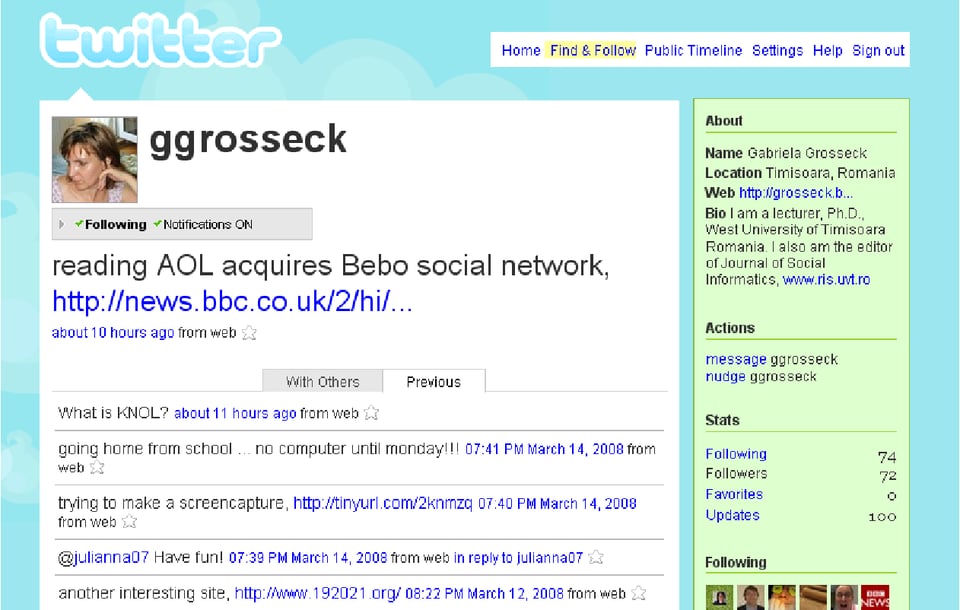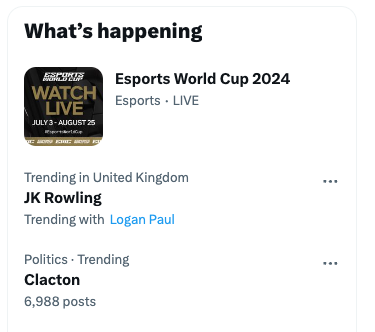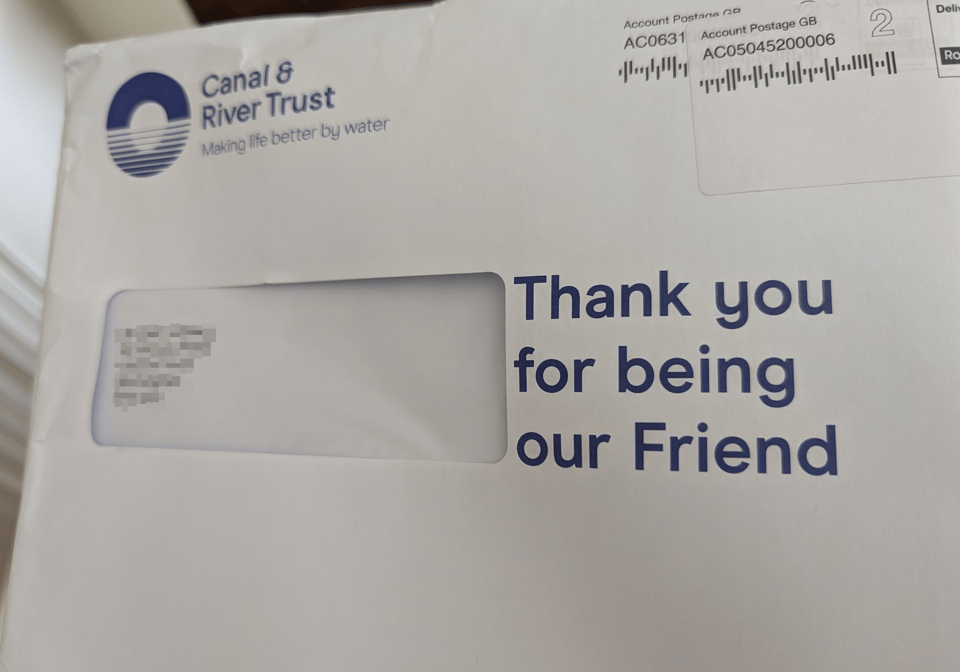Why I deleted 20,000 of my best (and worst) tweets
Reflections on early Twitter, deleting tweets, and becoming a Friend of the Canal & River Trust.
I was an early Twitter user, joining the site in March 2008 and using it as a platform to spout my half-baked opinions, weak attempts at humour and efforts at self-promotion. These days I do that stuff via newsletters.
Twitter back then still had something of the “early internet” to it – for one thing, it had an SMS integration where it would literally text you tweets from people you followed. Explaining this now feels like telling Gen-Z kids what Blockbuster Video’s business model was.

It built on the early “blogosphere” (another term that feels faintly embarrassing to define in 2024) and the tangible sense of community, especially in the areas of web design/development, news, technology and arts where lots of my interests lay. I’d grown up using internet message boards to chat to fans of the music I liked as a teenager, but now I was in my twenties, social media was here. In 2011 I deleted my Facebook account permanently – everything I needed from social media was right there on Twitter.
It transcended the web, in some ways: I remember Nat organising a series of events in a pub in London called BBC Question Time Watchalong, which brought together all the politics nerds who regularly watched the iconic BBC show and live-tweeted their reactions to it. We all sat in a back room while the show was projected on a big screen and everyone was glued to their phones, tweeting about the show while also joining in with ironic in-person memes and drinking games. Reading this back it sounds horrendous but it was brilliant; anarchic, even.

A few weeks ago I deleted all of my 20,000+ tweets. It wasn’t easy to do: Twitter (I refuse to call it X) implemented some extremely stingy API limits which made it a non-trivial task to remove more than a couple of hundred tweets before being blocked.
I could’ve just deleted my whole account, but this risked someone else setting up a fake one – admittedly I’m not a likely target for impersonation, but I didn’t like the idea of someone squatting on a username I’d owned for 16 years.
Before deleting everything, I downloaded an archive of all my tweets and messages, and uploaded a public version of it to my own webspace. All my old tweets are still visible there, along with the likes and retweet count. I enjoyed the idea of keeping my content while removing it from the control of Elon Musk.
I hadn’t tweeted since October 2023 – a huge gap, for me. I found myself more and more frustrated with Musk’s alienating decisions, amateur-hour technical capabilities, and increasingly partisan political stances. Every time I logged into the site—usually to check a breaking news story or similar—I’d be instantly dragged into whatever the latest controversy was by the “What’s happening” trending search:

I’d find myself momentarily trying to understand what everyone was up in arms about, before wearily realising that, once again, “the algorithm” had trapped me. I closed the tab.
I miss Twitter for what it used to be, for when it really could claim to be “the global town square”. I miss the old web when it really did feel like there was potential to build a platform that let people express themselves without swamping your feed with hatred and aggression. Maybe that was just a fool’s hope.

It’s not all rosy: over the years I embarrassed myself multiple times with hastily-posted tweets, including one where I publicly criticised a colleague (albeit anonymously) and then was made to answer for it in a way I hadn’t expected. I deserved this, and was a classic young-man-in-tech who thought that knowing a few JavaScript frameworks suddenly qualified me to pass judgement on anything technical. But it was a place for that, too: the community there didn’t “cancel” me, but helped me gain perspective. That attitude certainly feels lost on Musk’s version of Twitter, which leaves me with no desire to participate any more.
I’m sad for how it ended but I’m glad to have kept my archive. I never delete things: I still have every message in my Gmail inbox dating back to 2004 when it was invite-only. I don’t believe in hiding mistakes either: I kept up all the tweets that later embarrassed me. They’re still there now, but in a place I control, without the “outrage lever” constantly being pressed, or the injection of hateful, disingenuous content being pressed around the things I want to see. My internet experience is better for it.
Mini-feels this week
A friend of the canals
A week or two ago I was filling my lunch break with a walk down the canal towpath. I met a woman who I’ve seen standing there before, trying to convince people to sign up as “Friends” of the Canal & River Trust, which looks after the canal network and towpaths all over the country.
I’ve written here before about how I’ve accidentally become something of a cyber-gongoozler, watching mostly-rubbish, self-filmed documentaries about life on a narrowboat. I couldn’t resist, then, signing up as a Friend – once I thought about how much I use the canals here. I’ll remind you that Birmingham famously has “more canals than Venice” (though surely it’s about quality over quantity?) and that they don’t pay for themselves.

So now I’m a Friend – for £10 per month, I’m improving Britain’s waterways, helping fix broken towpaths, and making the life of Britain’s canal denizens better. But mostly, I get a little sticker to put in my car window (or narrowboat) that just says: “I’m a Friend”.